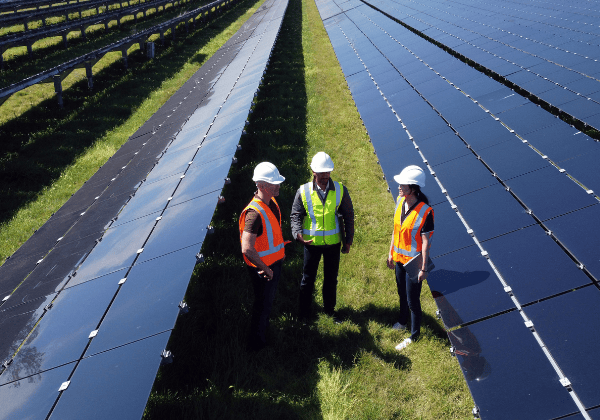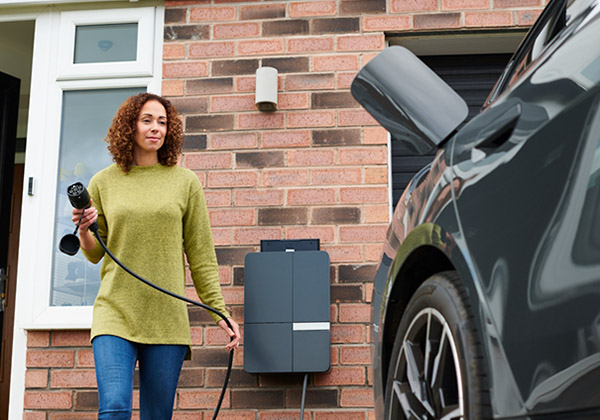Revised standard to electrical vehicles aims to improve safety
Statements
Standards Australia has released the recently revised AS5732:2022 standard designed to improve safety and efficiency for technicians maintaining Australia’s existing electric vehicle fleet.
With improvements in technology and growing global demand for eco-friendly transport, Australia has embraced the use of Electric Vehicles (EVs).
In 2021 Australia sold only 20,665 electric vehicles while in 2022 alone more than 33,000 electric vehicles were sold (FCAI VFACTS) and charging stations are increasing in various states across the country compared to previous years.
It is clear these vehicles have come to stay but – just like conventionally powered vehicles - they require maintenance and repair.
To help ensure the on-going sustainability of these vehicles, Standards Australia’s Committee EM-001, Electrical Vehicle Operation has recently published an updated standard AS 5732:2022, Electric vehicle operations — maintenance and repair.
AS 5732:2022 is an updated version of AS 5732:2015 and guides technicians on suitable ways of handling the repairs of the different ranges of electric vehicles.
It specifies safety requirements for working on the high voltage systems in Hybrid Electrical Vehicles (HEVs), Battery Electric vehicles (BEVs), Plug-in Hybrid Electric Vehicles (PHEVs) and Fuel Cell Electric Vehicles (FCEVs).
Ashley Sanders - Chair of the EM-001 Electrical Vehicle Operation Committee - said the standard which was first published in 2015 was recently revised to reflect the change in maintenance operations over the years.
“The intent of this standard is to keep technicians safe as they keep Australia’s electric vehicle fleet moving into the future – safely and efficiently.’’
“The original standard was issued in 2015 and this update reflects the advancements in maintenance operations over that period.’’
“The committee noticed some anomalies between what was in the standards as written and the availability of certain safety equipment, and we took the opportunity to do a thorough review and update the standard to make it more contemporary and reflect the current situation’.”
“This revision addresses the maintenance and servicing of electric vehicles that have already been introduced to the market’.’
“The technology is growing rapidly, and the committee continues to harmonise with international standards, where possible,” he said.
Ross De Rango, Head of Energy and Infrastructure for the Electric Vehicle Council - who is also a member of the EM-001 committee - said electric vehicles required maintenance and the workshops for these repairs needed to be safe from electric hazards.
“Just like petrol and diesel vehicles, electric vehicles require maintenance. The workshops and workers undertaking this maintenance have historically not needed to worry about electrical hazards from the vehicles, because traditional car and truck batteries are very low voltage. With the transition to EVs, the voltages will be much higher, so to keep our vehicle maintenance workplaces safe, standards and regulations will need revision.
“The recent update to AS5732 is one part of this. Equally important will be future revisions due to changes in the regulatory environment. Historically there has been very little cross-over between regulations covering electrical safety and vehicle maintenance, but with the inclusion of larger batteries in vehicles, that’s going to change.”
“Decarbonising our electricity system, electrifying our transport sector and getting to net zero by 2050 is going to be a huge job, and the electricity and transport sectors will need to do some heavy lifting.”
The recently published standard AS 5732:2022, Electric vehicle operations — maintenance and repair is available via the Standards Store and our distribution partners.
.jpeg)
Standards Australia has released the recently revised AS5732:2022 standard designed to improve safety and efficiency for technicians maintaining Australia’s existing electric vehicle fleet.
With improvements in technology and growing global demand for eco-friendly transport, Australia has embraced the use of Electric Vehicles (EVs).
In 2021 Australia sold only 20,665 electric vehicles while in 2022 alone more than 33,000 electric vehicles were sold (FCAI VFACTS) and charging stations are increasing in various states across the country compared to previous years.
It is clear these vehicles have come to stay but – just like conventionally powered vehicles - they require maintenance and repair.
To help ensure the on-going sustainability of these vehicles, Standards Australia’s Committee EM-001, Electrical Vehicle Operation has recently published an updated standard AS 5732:2022, Electric vehicle operations — maintenance and repair.
AS 5732:2022 is an updated version of AS 5732:2015 and guides technicians on suitable ways of handling the repairs of the different ranges of electric vehicles.
It specifies safety requirements for working on the high voltage systems in Hybrid Electrical Vehicles (HEVs), Battery Electric vehicles (BEVs), Plug-in Hybrid Electric Vehicles (PHEVs) and Fuel Cell Electric Vehicles (FCEVs).
Ashley Sanders - Chair of the EM-001 Electrical Vehicle Operation Committee - said the standard which was first published in 2015 was recently revised to reflect the change in maintenance operations over the years.
“The intent of this standard is to keep technicians safe as they keep Australia’s electric vehicle fleet moving into the future – safely and efficiently.’’
“The original standard was issued in 2015 and this update reflects the advancements in maintenance operations over that period.’’
“The committee noticed some anomalies between what was in the standards as written and the availability of certain safety equipment, and we took the opportunity to do a thorough review and update the standard to make it more contemporary and reflect the current situation’.”
“This revision addresses the maintenance and servicing of electric vehicles that have already been introduced to the market’.’
“The technology is growing rapidly, and the committee continues to harmonise with international standards, where possible,” he said.
Ross De Rango, Head of Energy and Infrastructure for the Electric Vehicle Council - who is also a member of the EM-001 committee - said electric vehicles required maintenance and the workshops for these repairs needed to be safe from electric hazards.
“Just like petrol and diesel vehicles, electric vehicles require maintenance. The workshops and workers undertaking this maintenance have historically not needed to worry about electrical hazards from the vehicles, because traditional car and truck batteries are very low voltage. With the transition to EVs, the voltages will be much higher, so to keep our vehicle maintenance workplaces safe, standards and regulations will need revision.
“The recent update to AS5732 is one part of this. Equally important will be future revisions due to changes in the regulatory environment. Historically there has been very little cross-over between regulations covering electrical safety and vehicle maintenance, but with the inclusion of larger batteries in vehicles, that’s going to change.”
“Decarbonising our electricity system, electrifying our transport sector and getting to net zero by 2050 is going to be a huge job, and the electricity and transport sectors will need to do some heavy lifting.”
The recently published standard AS 5732:2022, Electric vehicle operations — maintenance and repair is available via the Standards Store and our distribution partners.

Email:

Email:


